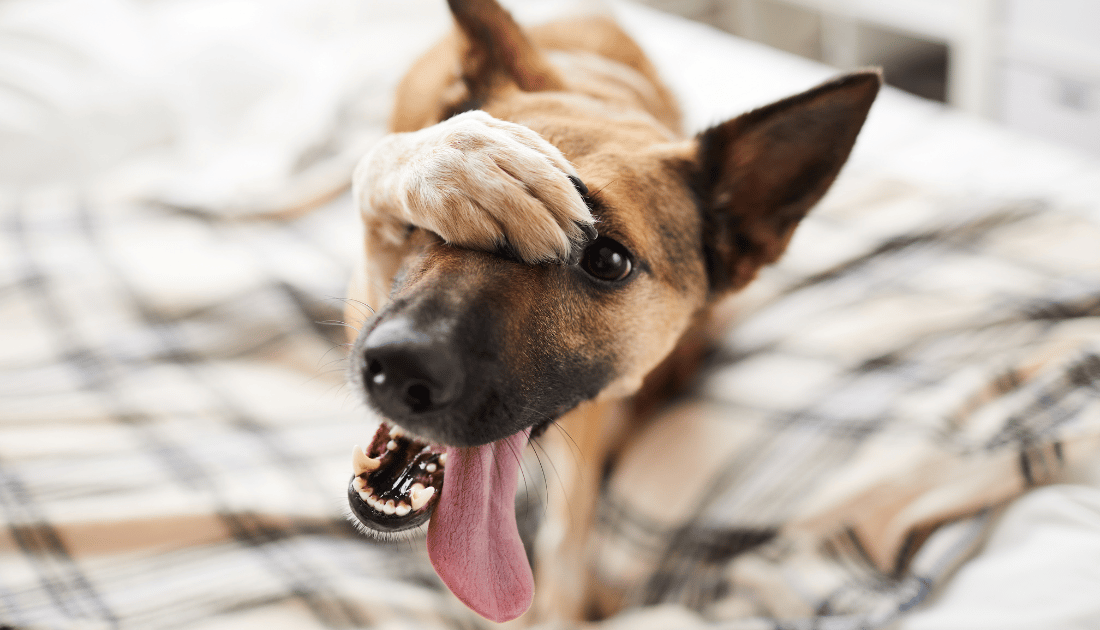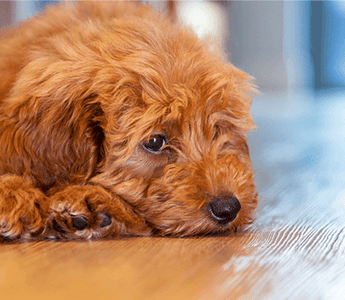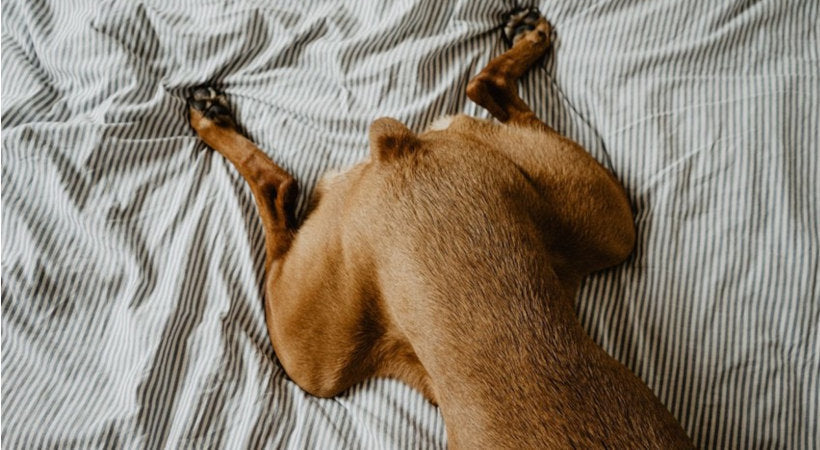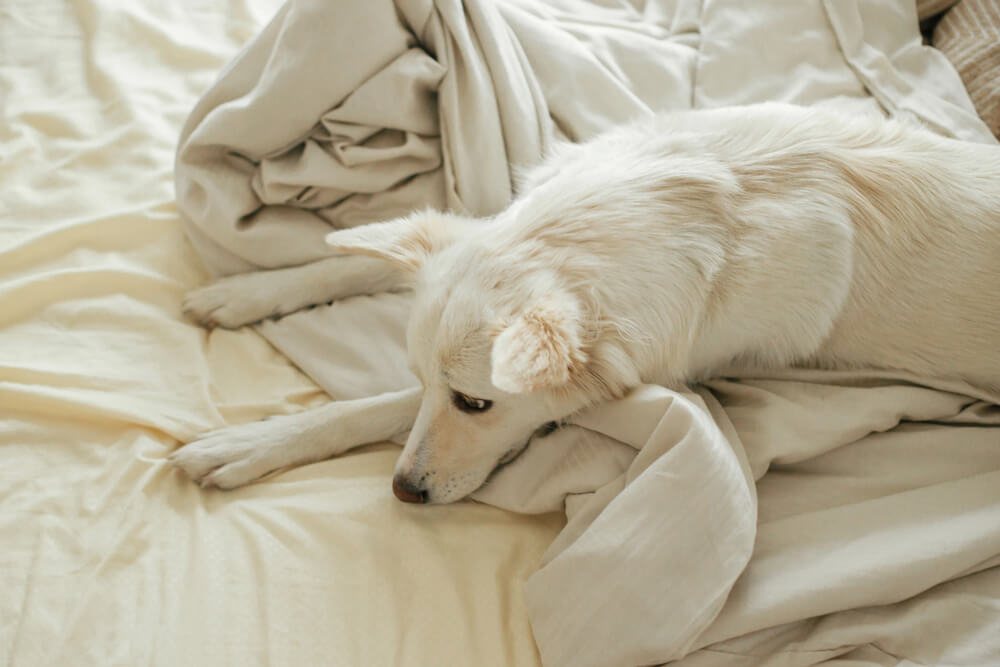Have you ever woken up to find your bed wet and wondered, “Why does my dog pee in my bed?” It’s frustrating, confusing, and honestly, pretty upsetting.
You love your dog, but this behavior feels like a big problem. The good news is, there are reasons behind it, and understanding them can help you stop it for good. Keep reading, because by the end of this article, you’ll know exactly why this happens—and what you can do to protect your bed and keep your furry friend happy.

Credit: rockykanaka.com
Common Causes Of Bed Peeing
Discovering that your dog has peed in your bed can be frustrating and confusing. Understanding why this happens is key to addressing the behavior effectively. Several common causes can lead to bed peeing, each with its own clues and solutions.
Marking Territory
Dogs use urine to mark their territory, especially if they feel their space is threatened. If new people, pets, or changes in the environment occur, your dog might mark your bed to assert ownership.
Think about recent changes around your home. Has a new pet arrived, or have you moved furniture? These can trigger marking behavior that targets your bed.
Anxiety And Stress
Stressful situations can make dogs lose control of their bladder. Separation anxiety, loud noises, or unfamiliar visitors may cause your dog to pee in places they usually wouldn’t.
Have you noticed your dog acting nervous or restless before accidents? Addressing the source of stress can reduce these incidents significantly.
Medical Issues
Health problems like urinary tract infections, bladder stones, or diabetes can cause sudden bed peeing. These conditions often come with other signs such as frequent urination or discomfort.
If your dog’s behavior changes suddenly, a vet visit is essential. Ignoring medical causes can worsen your dog’s condition and the accidents.
Lack Of Training
Sometimes, dogs haven’t fully learned where it’s appropriate to pee. Puppies and adopted dogs might need extra guidance to understand boundaries.
Consistent house training and positive reinforcement can help your dog learn to avoid your bed. Have you been clear and patient with your training efforts?
Age-related Factors
Older dogs can develop incontinence or cognitive decline, which affects bladder control. This makes accidents more common, even in well-trained pets.
Recognizing age-related changes allows you to adapt your care. Special bedding, frequent walks, and vet advice can ease this challenge.
Behavioral Triggers
Dogs may urinate on beds due to several behavioral triggers. These triggers often reveal why your dog acts this way. Understanding these behaviors helps address the issue effectively. Below are some common causes related to behavior.
Changes In Environment
Dogs feel stressed by changes in their surroundings. Moving to a new home or rearranging furniture can confuse them. This confusion sometimes causes them to mark their territory. New people or pets can also increase anxiety. Dogs may pee on beds to feel secure in a strange place.
Attention-seeking Behavior
Some dogs pee on beds to get your attention. They learn that this action makes you react. Even negative reactions give them a form of attention. Dogs crave interaction and may use this behavior to connect. Lack of enough playtime or affection can worsen this habit.
Separation Anxiety
Dogs with separation anxiety often show distress when alone. Urinating on your bed is one sign of this anxiety. It is a way to cope with fear and loneliness. This behavior happens when dogs feel insecure without their owners. Providing comfort and routine helps reduce this stress.
Health Concerns To Watch For
Dogs peeing in bed might signal health issues. These problems need attention fast. Ignoring signs can cause discomfort and worsen health. Watch your dog closely. Learn about common health concerns linked to this behavior.
Urinary Tract Infections
Urinary tract infections (UTIs) often cause sudden urination in unusual places. Dogs feel pain or burning when they pee. Frequent accidents, licking the genital area, or blood in urine are signs. UTIs need prompt veterinary treatment. Left untreated, infections can spread and cause serious illness.
Bladder Problems
Bladder problems may cause loss of control. Conditions like bladder stones or inflammation lead to accidents. Your dog might strain or have weak urine flow. Watch for frequent urination or leaking urine. A vet can diagnose bladder issues with tests. Early care helps prevent discomfort and bigger problems.
Hormonal Imbalances
Hormonal imbalances affect urine control in dogs. Spayed females and older dogs can face this issue. Low estrogen or other hormone changes cause incontinence. This leads to sudden peeing in places like your bed. Hormonal treatment or medication can help manage symptoms. Veterinary advice is important for proper care.
Preventing Bed Peeing
Preventing bed peeing in dogs requires patience and consistent effort. Understanding your dog's habits helps stop accidents. You can create a better environment and training plan to keep your bed dry and your dog happy.
Establishing A Routine
Dogs thrive on routine. Set regular times for bathroom breaks. Take your dog outside first thing in the morning, after meals, and before bedtime. Consistency reduces accidents inside the house. Watch for signs your dog needs to go out. A steady schedule builds good bathroom habits.
Proper Training Techniques
Use positive reinforcement to teach your dog where to pee. Praise your dog after they go outside. Avoid punishment for accidents; it can cause fear. Clean accidents thoroughly with enzyme cleaner to remove odors. Use commands like “go potty” to help your dog understand. Training takes time but improves behavior.
Creating A Comfortable Space
Your dog needs a safe, cozy place to rest. Provide a bed or crate in a quiet area. Avoid letting your dog sleep on your bed until accidents stop. A comfortable space reduces anxiety and stress. Stress can cause unwanted peeing. A calm dog is less likely to have accidents.
When To Consult A Veterinarian
Knowing when to consult a veterinarian can save your dog from discomfort and prevent your bed from becoming a frequent target. Not every accident signals a medical issue, but some behaviors definitely warrant professional attention.
Persistent Peeing Issues
If your dog keeps peeing in your bed despite consistent training and cleaning, it’s time to seek veterinary advice. Persistent accidents might indicate urinary tract infections, bladder stones, or other health problems that you can’t see on the surface.
Think about how long this behavior has lasted. More than a few days of repeated accidents deserves a vet’s evaluation. Don’t wait until it becomes a habit—early diagnosis can make treatment easier.
Signs Of Discomfort Or Pain
Watch closely for any signs that your dog is uncomfortable or in pain. Whining when urinating, frequent attempts to go, or blood in the urine are clear red flags.
Sometimes dogs hide pain well, so subtle clues like licking their genital area more than usual or changes in posture can be just as important. Have you noticed your dog acting stiff or reluctant to move after accidents?
Behavioral Changes
Sudden changes in your dog’s behavior often point to underlying issues. If your dog seems anxious, confused, or withdrawn alongside peeing in your bed, it’s more than just a bad habit.
Behavioral shifts can signal cognitive dysfunction, stress, or other medical conditions. Are you seeing less interest in walks or playtime? These changes can help your vet pinpoint the cause behind the accidents.

Credit: bullybeds.com

Credit: walkinpets.com
Frequently Asked Questions
Why Does My Dog Pee On My Bed Repeatedly?
Dogs may pee on beds due to stress, anxiety, or marking territory. It can also signal health issues like urinary infections. Identifying the cause helps in addressing the behavior effectively and keeping your bed clean.
Can Medical Issues Cause My Dog To Pee In Bed?
Yes, urinary tract infections or bladder problems can cause accidents. If your dog pees in bed suddenly, consult a vet. Early diagnosis ensures proper treatment and prevents repeated incidents.
How Can I Stop My Dog From Peeing In My Bed?
Clean the bed thoroughly to remove odors, use deterrents, and provide regular bathroom breaks. Training and addressing anxiety or health issues are key to preventing this behavior long-term.
Is My Dog Peeing In Bed A Sign Of Anxiety?
Yes, anxiety can cause dogs to urinate in unusual places like beds. Identifying stress triggers and providing comfort or professional help reduces anxiety-induced accidents.
Conclusion
Understanding why your dog pees in your bed helps solve the problem faster. Dogs may act out because of stress, illness, or poor training. Watch your dog’s behavior and check their health. Clean the bedding well to remove smells. Train your dog with patience and kindness.
Small changes can stop this behavior for good. Your dog wants love and care. Helping them feel safe prevents accidents. Stay calm and consistent every day. This will bring peace back to your home.

Emily Barker is the founder of ChillDogLife.com, a space dedicated to helping pup parents discover the best dog products, lifestyle tips, and cozy ideas for happier homes.
A lifelong dog lover, Emily combines her passion for pets with a knack for research to share trusted recommendations on everything from toys and furniture to health and everyday care.
Her goal is simple: to make life easier, stylish, and more joyful for dogs and the people who love them.







